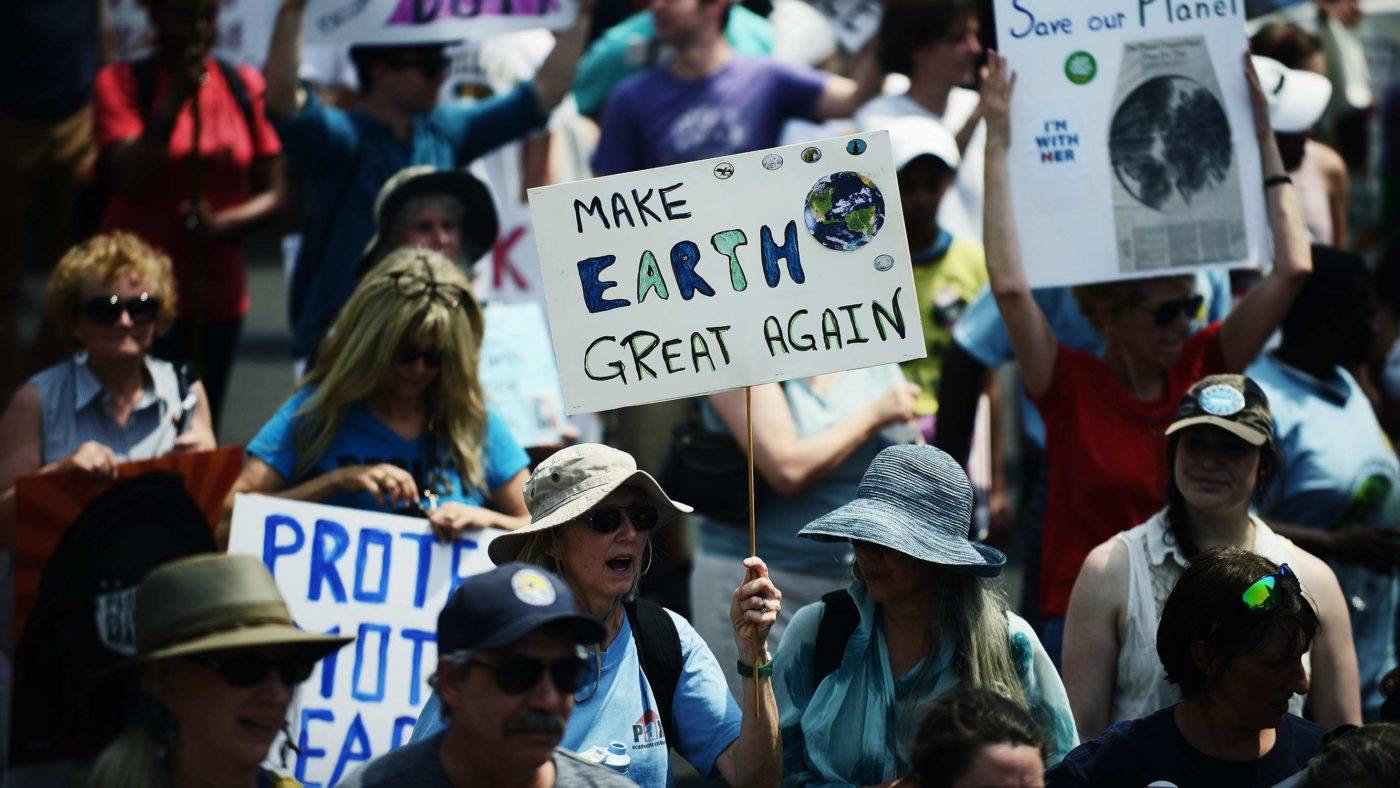The entire right-thinking world is aghast that Donald Trump has pulled the United States out of the Paris Accord. Yet the truth is it doesn’t matter a damn. Not because climate change doesn’t matter, but because of what we’ve already done about it.
Let’s take as our starting point the idea that the IPCC is correct: climate change is happening, we’re causing it, we must do something. If you disagree with any of those three, then good for you, but the rest of us will get on with discussing what is it we should actually do.
The obvious answer is that we’ve got to find a manner of powering an industrial civilisation without spewing vast amounts of CO2 into the atmosphere. Which in turn really means replacing fossil fuels with something else. All of the other stuff – the agricultural emissions and so on – can be changed well enough via innovations such as no-till farming and so on. It means lots more GM and herbicides, but it does indeed work.
But fossil fuels are the big one. And how are we going to wean ourselves off them?
Fortunately, we had a great big report on this: all 576 glorious pages of the Stern Review. Its central message is that we cannot and should not do this by regulation and bureaucracy. We stick our kludge into the marketplace – once and once only – and then allow those adjusted free markets to do the work for us.
That is, we have not an accord, an agreement, or a mobilising task force, but a carbon tax.
The point here is that there are many axes along which CO2 emissions can be reduced. We could move house to be closer to work, thus commuting less. We could drive cars with smaller engines. We could have more walkable cities. In other words, it’s not just about an all-out effort to replace the internal combustion engine with a battery-powered Flymo.
We also know that tax actually works. European petrol taxes have been very much higher than those in the US for a couple of generations now. And we do live closer to work, commute less, and have smaller engines in our cars.
There is another point that Stern makes. If we rely on bureaucracy to reduce CO2, we will do less of it. Bureaucracy and regulation are inefficient. We want our planet-saving efforts to be efficient, because that means that the same amount of effort or cost will do more to reduce climate change – or that we will make ourselves less poor while still dealing with the problem.
At which point it is worth noting that the US has reduced CO2 emissions, since it didn’t sign Kyoto, from 20-odd tones per capita in 1990 to 16.5 in 2013. In Germany, a vast government initiative to replace everything with solar panels has reduced theirs from roughly 11 tonnes to 9.2. They’re coming from different starting points, to be sure, but it’s not exactly obvious that leaving the market to invent fracking for gas has been a worse than relying on the bureaucrats costing the odd trillion in regulations.
Yet the real reason why the Paris thing just isn’t important is because we’ve already – if we are to believe the climate-change worriers – done the work that it was necessary to do.
Joe Romm, a leading environmental blogger, is one of the many people who has reacted to Trump’s decision on Paris with outrage and despair. Yet the same Joe Romm recently told us all that solar is now much, much cheaper than coal-generated electricity.
If true, that’s excellent news – because that’s what we needed to do, isn’t it? We needed to devise a technology cheaper than fossil fuel so that we’d all prefer to use it. If solar really is cheaper, then we’re done, we’ve solved our problem. As generation capacity comes up for renewal over the years, we’ll install the cheaper option and Flipper won’t boil in the remains of the last ice floe. Whether we used bureaucracy or tax to get to there is an irrelevance.
And this would also mean that we wouldn’t need to do the other part of that Paris Accord, either. (For the completists, the reason that this is an accord not a treaty is because treaties need to be passed by the US Senate. When the Byrd-Hagel resolution came before that house of distinguished solons, it voted 95 to no damn way to even considering Kyoto.)
This second part holds that, as well as reducing their own emissions, rich countries will help pay poor ones to wean themselves off CO2. But if non-CO2-emitting technology is cheaper, then there’s no reason to subsidise poorer countries to use it, is there? It’s cheaper anyway.
All of which is why the US being in or out of the Paris gubbins matters not a damn. The technologies needed to deal with the problem have, so we are continually told, already been invented. And once they’re cheap enough – which they may well already be – then people will preferentially install them. There is nothing else we need.
Similarly, the evidence in front of us tells us that emissions reductions are coming in those places which did sign up to the last international agreement and in those places which did not. So the treaty, the accord, is of no moment, while technology and prices very much are. Brought to you, of course, by free markets and their incentives – even if we should jam a lever into them in the form of a tax, to push things in the right direction.


